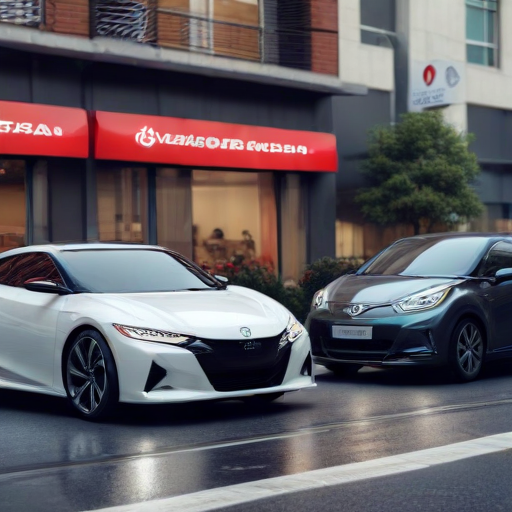Honda and Nissan are currently in discussions regarding a potential merger, which could unify two of Japan’s major automotive manufacturers that have been facing recent difficulties. While the companies have confirmed these talks, they have not provided any detailed information or a timeline for a potential agreement. The Japanese Nikkei publication was the first to report on this potential collaboration.
In their joint communication, Honda and Nissan mentioned that they have been exploring various avenues for future cooperation, aiming to leverage each other’s strengths in the auto industry. They also indicated that updates will be shared with stakeholders as they become available. Mitsubishi has also been included in these preliminary discussions, although it has not commented publicly.
Previously, Honda and Nissan announced collaborations focused on electric vehicles and battery technology, emphasizing their commitment to adapt to the evolving automotive landscape. Both companies have faced challenges in the competitive Chinese market, which has seen consumers gravitate towards local brands that offer better perceived value. This shift poses a significant challenge for established automakers like Nissan and Honda, particularly as domestic brands, such as BYD, have gained an edge in electric vehicle technology at more affordable prices.
Nissan has encountered further obstacles in the aftermath of the departure of its former CEO, Carlos Ghosn, who fled legal trouble in Japan. His exit has disrupted the alliance that previously held Nissan, Renault, and Mitsubishi together, leading to a reduction in Renault’s ownership stake in Nissan.
Nissan has reported a dramatic decline in its operating income by 90% from March to September this year compared to the same period last year. Honda, despite being significantly larger than Nissan, is also contending with hurdles in the transition towards zero-emission vehicles, targeting a shift to these models in major markets by 2040. However, this goal has been hampered by low gas prices, limited charging infrastructure, and rising competition.
In summary, the potential merger between Honda and Nissan may present a strategic opportunity for the two automakers to pool their resources and strengthen their position in the increasingly competitive automotive landscape, especially in the realm of electric vehicles. As they navigate the challenges ahead, their collaboration could lead to innovations and improvements that benefit consumers and perhaps even restore their competitiveness in key markets.
A positive outlook on this development is that such a partnership, if successful, could pave the way for a more robust approach to tackling industry challenges, ultimately benefiting consumers with enhanced vehicle options and possibly more competitive pricing in the electric vehicle sector.
